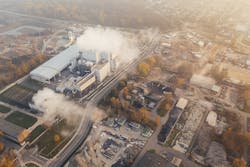NOAA Launches Coronavirus Pollution Research Efforts
In the wake of COVID-19 (coronavirus), the National Oceanic and Atmospheric Administration (NOAA) has launched a research effort to investigate the impact of reduced vehicle traffic, air travel, shipping, manufacturing and other activities on Earth’s atmosphere and oceans.
NOAA scientists are using the most advanced atmosphere-ocean models to study for changes in atmospheric composition, weather, climate, and precipitation, according to the press release.
This research will provide important evaluations to improve weather forecasting and climate projections going forward, according to NOAA.
The scientists are investigating the impact of decreased pollution in specific areas over the short term. In the oceans, NOAA scientists will be assessing impacts of reduced underwater noise levels on marine life, according to the press release.
NOAA’s global greenhouse gas monitoring network has begun aerial sampling over several large East Coast cities.
“This unique view into the relative stillness we find ourselves in is only possible because of the existing baseline knowledge that NOAA has built over decades of monitoring, modeling and research,” said Craig McLean, assistant NOAA administrator for Oceanic and Atmospheric Research. “This research is providing new insight into the drivers of change for our oceans, atmosphere, air quality, and weather. Our past work has prepared us to investigate these unprecedented times.”
Scientists are also trying to determine if reduced airline traffic is reducing the amount of high cirrus clouds, and whether the formation of lower-altitude clouds or the amount of solar energy reaching the surface is impacted as a result.
Several NOAA research laboratories are evaluating how changes in activity impact emissions including carbon dioxide, methane, aerosols and common air pollutants.
All research activity will be conducted under the Department of Commerce and Centers for Disease Control guidance, concluded the press release.
